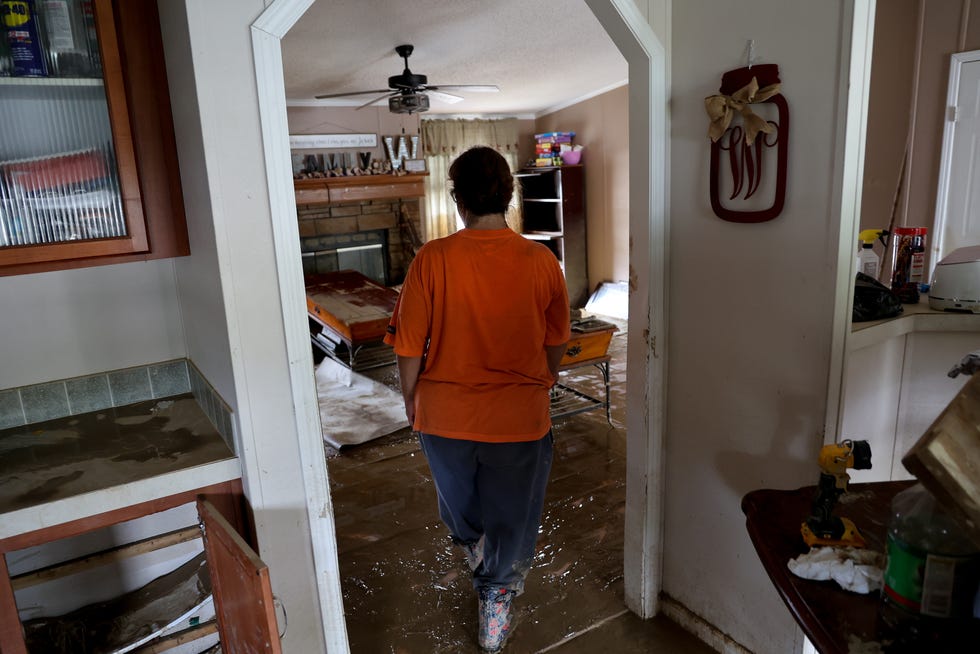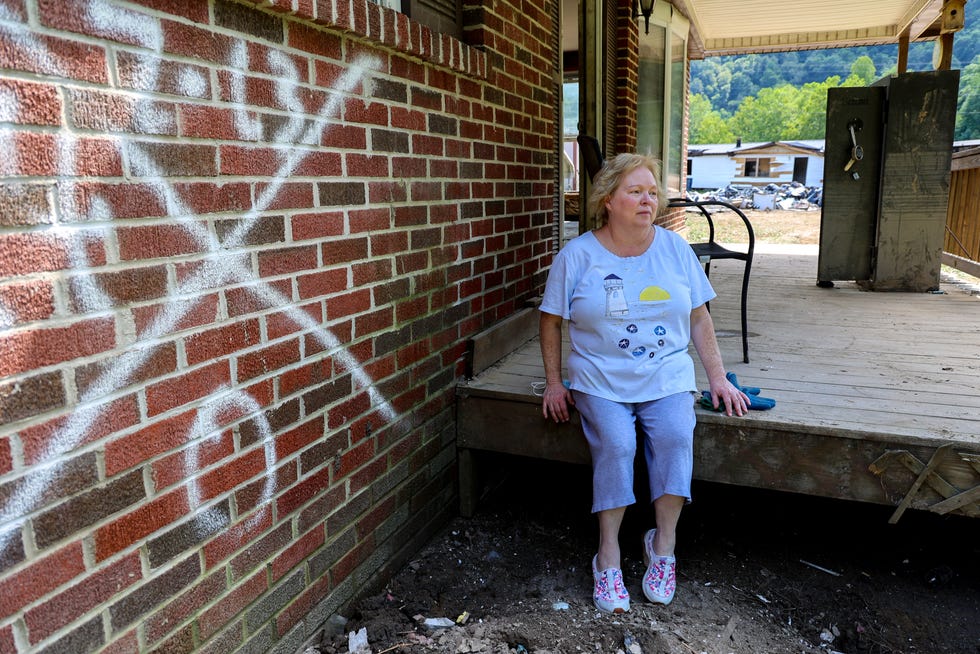Kentucky flooding raises urgent questions about Appalachia’s future
JACKSON, Ky. — Teresa Watkins worked to salvage a few mud-caked belongings from her home on a Breathitt County branch of the Kentucky River after July 28 floods slammed her neighborhood for the second time in 17 months.
The 54-year-old, who has lived off Quicksand Road since she was a teenager, said the flooding in recent years – “more and more, worse and worse” – has left difficult dilemmas in a county where median household incomes of $29,538 are less than half the national average.
She pointed to a mobile home one family abandoned last year. Now, more say they’re leaving for safer areas, she said, but it’s not that easy.
“I don’t know how they can afford it, or where they’re going to go. Any property is basically along the river line or creek banks,” she said. “And if they go up on the mountains, the mountains slide.”
‘I CAN’T GET OUT’:As historic flooding raged, Kentucky woman survived by binding herself to her kids with vacuum cord
Devastating floods that killed at least 37 people in Kentucky and recent damage in other parts of Appalachia, including Virginia and West Virginia, are fueling urgent questions about how to mitigate the impact of hazardous flooding that is only expected to increase as climate change fuels more extreme weather.
But in one of America’s most economically depressed regions, there are few easy answers.
The region’s mountainous landscape, high poverty rates, dispersed housing in remote valleys, coal-mining scarred mountains that accelerate floods and under-resourced local governments all make solutions extremely difficult.

Measures such as flood wells, drainage systems or raising homes are expensive for cash-strapped counties. Buyouts or building restrictions are difficult in areas where safer options and new home construction are limited. Many are unable or unwilling to uproot.
And tamping down extreme weather by reducing climate-changing emissions nationwide is a goal that is politically fraught, including in a region with coal in its veins, that promises no quick relief.
“If we had all the money in the world, and we had the political will and cooperation, we could go a long way towards solving these problems,” said William Haneberg, director of the Kentucky Geological Survey and a professor of Earth & Environmental Sciences at the University of Kentucky.
Even as Kentucky’s devastation renews attention to longstanding challenges, some residents say they have little hope that effective protections will arrive anytime soon.
For now, the emphasis is on trying to rebuild what was lost. In Kentucky, Gov. Andy Beshear said recently that he may call a special legislative session for more aid to the region, and FEMA is providing housing and other help.
CLIMATE POINT:Subscribe to USA TODAY’s free weekly newsletter on climate change, the environment and the weather

Still, repeat floods have prompted some officials to search for longer-term answers. Buchanan County, Virginia, for example, is drawing up a flood-resiliency plan to identify projects to blunt flooding’s impact. But those projects would still have to be paid for.
Some residents are fatalistic or doubt the…
Read More: Kentucky flooding raises urgent questions about Appalachia’s future
